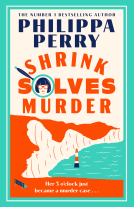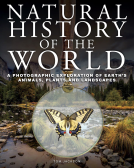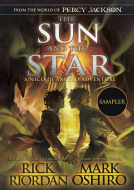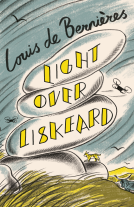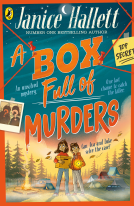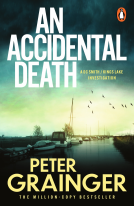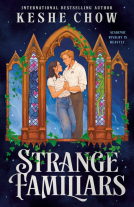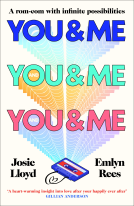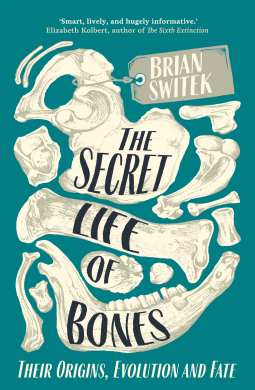
The Secret Life of Bones
Their Origins, Evolution and Fate
by Brian Switek
This title was previously available on NetGalley and is now archived.
Send NetGalley books directly to your Kindle or Kindle app
1
To read on a Kindle or Kindle app, please add kindle@netgalley.com as an approved email address to receive files in your Amazon account. Click here for step-by-step instructions.
2
Also find your Kindle email address within your Amazon account, and enter it here.
Pub Date 8 Aug 2019 | Archive Date 19 Aug 2019
Prelude Books | Duckworth
Talking about this book? Use #TheSecretLifeOfBones #NetGalley. More hashtag tips!
Description
Bone is a marvel, an adaptable and resilient building material developed over 500 million years of evolutionary history. It has manifested itself in wings, sails, horns, armour, and an even greater array of appendages since the time of its origin. In dinosaur fossils, skeletons are biological time capsules that tell us of lives we'll never see in the flesh. Inherited from a common fishy ancestor, it is the stuff that binds all of us vertebrates together into one great family. Swim, slither, stomp, fly, dig, run - all are expressions of what bones make possible. But that's hardly all.
In The Secret Life of Bones, Brian Switek frames the history of our species through the importance of bone from instruments and jewellery, to objects of worship and conquest from the origins of religion through the genesis of science and up through this very day. While bone itself can reveal our individual stories, the truth very much depends on who's telling it. Our skeletons are as embedded in our culture as they are in our bodies.
Switek, an enthusiastic osteological raconteur, cuts through biology, history, and culture to understand the meaning of what's inside us and what our bones tell us about who we are, where we came from and the legacies we leave behind.
Advance Praise
'Smart, lively, and hugely informative... the ideal guide to the bones around us and in us.' Elizabeth Kolbert, author of The Sixth Extinction
‘A witty, conversational romp through the world of bones, by one of our finest natural history writers.' Steve Brusatte, University of Edinburgh palaeontologist and Sunday Times bestselling author of The Rise and Fall of the Dinosaurs
‘A thoughtful, engaging meditation on the origins of the human skeleton.' Nature ‘
'Compellingly evokes the sheer wonder and complexity of the supporting framework inside you - and the murky human responses it arouses.’ Science
'A provocative and entertaining magical mineral tour through the life and afterlife of bone.' The Wall Street Journal
Available Editions
| EDITION | Ebook |
| ISBN | 9780715653807 |
| PRICE | $9.99 (USD) |
Links
Average rating from 26 members
Featured Reviews
The Secret Life of Bones was a generally entertaining read. There was a little 'hard science' in terms of paleontology and anatomy, but not so much it became oppressive for me as a novice. I particularly enjoyed the section looking at the recovery and identification of Richard III's remains, and several other facts were new to me and therefore interesting and surprising. Overall this was a fascinating book that covered a wide range of fields and areas of interest, all connected to bone.
 Annette J, Reviewer
Annette J, Reviewer
A well researched and very readable book, the Secret Life of Bones by Brian Switek was an absorbing account of bone in all its guises. Approaching the topic from the perspectives of culture and history as well as biology, Switek has created a book that is both informative and entertaining. Written in layman;s terms and without too much technical or scientfic jargon , the broad subject matter is broken down into easily managed topics like the how our skeleton developed over the evolutionary process and the many similarities still to be found with a surprising array of other creatures to the buying and selling of bones, from the grave robbing days of Burke and Hare to E Bay auctions in the internet age. I found the sections dealing with the functional anatomy of bones, and how not just disease but culture can change this malleable tissue fascinating. I had never really given much thought to bones , in the abstract or in the case of my own skeleton , but it turns out that they are more interesting than I could ever have imagined.
I read and reviewed an ARC courtesy of NetGalley and the publisher, all opinions are my own.
 Librarian 431790
Librarian 431790
I read "My Beloved Brontosaurus" by Brian Switek and loved it so when I saw this ARC I knew I had to read it.
I love Mr Switek style of writing, the understated humour and the clarity of the explanations.
He's a great science communicator that makes you love the topic he's writing about and this book was no exception.
I read it like a novel, engrossed and full of curiosity. I liked what I read and I can say I learned a lot.
It's a well written book, full of clear explanations that will help you to understand and learn about bones.
I look forward to reading the next book by Mr Switek.
Highly recommended.
Many thanks to the publisher and Netgalley for this ARC, all opinions are mine.
 Rebecca H, Reviewer
Rebecca H, Reviewer
A relaxed, fun read on the subject of bones: where they came from, what they do, and how people have studied them over the years.
The book is a romp through intriguing topics from the La Brea Tar Pits to the recent discovery of the bones of Richard III. It looks at some complex issues along the way. Can you say for sure whether a skeleton is male or female -- or does that lead to false assumptions? Should science be in competition with spirituality? Is the display of human bones disrespectful?
The author is an expert, but the book is very accessible.
What do you know about bones? Personally, I don’t know much. They make up our skeleton, they’re the reason we’re able to run around on two legs, they break and you fix them. I’d like to think I know most of the names but, upon a quick personal quiz, I failed miserably. It’s not a part of human anatomy I think about much.
In the Secret Life of Bones, author Brian Switek takes this basic piece of human anatomy and turns it into a thrilling story, combining biology, human evolution and history, and accounts from a few personal research trips to create this entertaining tome. It’s truly amazing how many museums, institutions and private collections are housing countless bone collections. From a distance, they all look the same but up close, every skeleton tells its own story.
Bones themselves are fascinating structures given their perseverance centuries after the body’s death. You’ll find a dive into their makeup, but that’s not the real gem in the book. This is a real history of bones, complete with strange collections and even stranger scientists and enthusiasts who have remained enthralled by what bones can tell us about the past. Many of the stories give rise to the old ‘stranger than fiction’ adage.
Switek has a very personable writing style, flowing seamlessly between personal experiences and historical accounts. It’s all extremely engaging, showing his excitement for the subject matter. You’ll learn loads of facts and figures you didn’t know and by the end, you’ll have a new appreciation and respect for the bones holding you together.
To be published on 8/8: http://reviewsandrobots.com/2019/08/08/the-secret-life-of-bones-book-review
Excellent popular-science book about bones
I enjoyed this book. It has everything I expect in good science writing: written in a conversational tone, with the science clearly explained, and topped off by a sense of humor. It also covers an area that doesn’t crop up that often in popular-science books - your bones. The book was hard to put down. I recommend this book for anyone interested in, well, bones.
The Secret Life of Bones is a new popular science treatise on all things bone and skeletal by natural history writer (and paleontologist) Brian Switek. Released 8th Aug 2019 by Prelude books, it's available in paperback format. It's unclear from the publishing info available online, but the eARC I received also has a handy interactive table of contents as well as interactive links and references. I've really become enamored of ebooks with interactive formats lately.
The book itself is split into 10 chapters plus an erudite and entertaining introduction, each containing an anecdote and history around which framework the stories are woven. Covered in the book are Grover Krantz (famous anthropologist and proponent of bigfoot as real), the undying rivalry between Othniel Charles Marsh and Edward Drinker Cope, the discovery of English king Richard III buried under a car park lo, these 550 years since, and confidently identified through the magic of DNA analysis, along with several others.
This is a wildly entertaining book, scientifically accurate and layman accessible. I really enjoyed reading about some of the methods used by modern anthropologists and paleontologists along with the scientific background involved. This would make a really good read for fans of natural history.
Four stars.
 Cristie U, Book Trade Professional
Cristie U, Book Trade Professional
This was an interesting read, as it was factual without being boring. I have never been a fan of science class, so wasn't sure if I would enjoy this read or not, but I did thanks to the author's writing style that made this an enjoyable read for people like me, I like how well the author intersected the links between history and science and this was incredibly well-researched.
 Laura N, Bookseller
Laura N, Bookseller
This was a really interesting and accessible exploration into the world of bones - what they are, how they work and what they can, and can't, tell us about the past. The book is structured in a roughly chronological fashion, but Switek dips in and out of topics that he finds particularly interesting, which lends the narrative a great conversational tone. His passion for his subject shines through and he wisely includes enough detail to keep things very interesting without straying too far into academic language and terminology for the lay person. Overall, this was very engaging and I would recommend it to anyone with an interest in anthropology.
I received a free copy of this book from NetGalley in exchange for a fair and honest review.
In The Secret Life of Bones, Brian Switek frames the history of our species through the importance of bone from instruments and jewellery, to objects of worship and conquest from the origins of religion through the genesis of science and up through this very day.
One of the most interesting books I’ve read recently, Switek takes us on a mystery tour of bones, no matter how odd in this book bringing us details about dinosaur bones to the bones of ancestors of tribes in America, this book gives a past, present and future of what keeps us standing and it makes for a fascinating read.
Much like a book I read recently, Epic Continent, our writer brings us incredible knowledge interspersed with personal experience that really adds flesh to the bones of this book (I’m sorry) and that personal touch in this book makes this book seem so much more complete - Switek knows what he’s talking about and you can tell from the start to finish when it comes to this read.
A fascinating read, if you like the historyor biology, this is the book for you.
Loved this science book! It has a perfect balance between entertainment and well, science. There is many information and stories about bones from different kinds of perspectives, like biology, medical or paleontology. It was never boring and I learned many new things about bones. Easy to read and wonderful illustrations. Definitely recommended!
 Adie H, Reviewer
Adie H, Reviewer
An interesting, informative, and entertaining popular science book that explores the history of the study of bones across many disciplines. Switek's writing is conversational, and easy to read, but there is a lot of science underneath it all, which is explained clearly. I very much liked the discussion of ethical issues alongside the pure science of the study of bones - the book shows how easy it is to bend science to fit preconceptions, such as racial profiling, or the villainisation of Richard III, and also explores issues such as how the determination of the osteological sex of a skeleton can have little to do with the identity and life of the person when they were alive. It's refreshing and welcome to see an understanding of diversity, and, let's be honest, some human compassion, in a scientific book like this. Very enjoyable indeed.
 Susan C, Reviewer
Susan C, Reviewer
A brilliant book with lots of fascinating facts about our skeleton and how it got to be how it is. A great read for anyone with a curious mind.
 Elissa S, Reviewer
Elissa S, Reviewer
Must.Like.Skeletons
Reading like a series of friendly lectures, the Cliff Notes version of the data which you, dear undergrad, were to have read before class, the information is hugely engaging, interesting and informative, explaining the evolution of the human skeleton from the first chordata to present posture, and positing our ongoing skeletal development as we continue to migrate from hunter/gatherer to farmer, to factory and office, and on into space. Both the space speculation and data and the Richard II sections are especially intriguing. Most poignant to me, however, was the explanation of a rare disease that is suffered by the sons of a friend--I hadn't really understood her description of FOP but Brian Switek was able to untangle the process of what's occurring. Unfortunately, knowing that, I also learned that so far there is no understanding of WHY the disease occurs nor how to prevent or reverse the process. I generally indulge mostly in fiction of all ilks but the description for this book sucked me in and I am delighted I persevered. As Mr. Spock would say, "Fascinating!" To which Bones might have replied, "Of course!"
 Mandy J, Reviewer
Mandy J, Reviewer
An entertaining, engaging, accessibly written and informative exploration of bones – their history, their development, their significance in human culture, their quirks and oddities. An excellent work of popular science with a good balance between serious science and anecdote.
 Stephanie N, Reviewer
Stephanie N, Reviewer
This is an absolutely fascinating popular science book. It makes the study of bones from the point of view of several approaches (biological, historical, ethical and so on) thoroughly accessible and totally engrossing. Anyone reading this book will learn lots of interesting things and get plenty to think about.
The author has a very easy-to-read style. He shares his immense knowledge in a conversational way, throwing in lots of entertainment along with the facts. It’s a book that’s great to dip into, but you may prefer to sit and read it from cover to cover. It’s one that’s hard to put down.
Thanks to Prelude Books and NetGalley for the Advance Review Copy in exchange for an honest review.
This is a really fun and interesting popular science read which covers the biological, historical and cultural aspects of bones. The book is easily accessible to the layman reader and Switek’s sense of humour and enthusiasm elevates what might be a rather dry and dusty (ha!) subject into something that would appeal to a wide range of readers without ever descending into being ghoulish or macabre.
There’s a lot to say about the subject so the book necessarily only gives a brief overview of each of the different bone related topics that Switek explores but it’s certainly enough to pique the reader’s interest and I felt like I learned a lot of things I didn’t know before.
It would have been good if there were some pictures to exemplify the different subjects being discussed but perhaps there is in the final print copy. Either way, we all have Google, so it wasn’t the end of the world.
 Reviewer 422088
Reviewer 422088
This is a really interesting book told in a light-hearted way that makes the concepts in the book wondrous and sometimes even funny. I learned so much about myself and what bones tell us about our world and about humanity. A very enjoyable read.
Readers who liked this book also liked:
Alessandra Ranelli
General Fiction (Adult), Literary Fiction, Mystery & Thrillers
Elly Vine
General Fiction (Adult), Mystery & Thrillers, Women's Fiction
Rick Riordan; Mark Oshiro
Children's Fiction, LGBTQIA, Teens & YA


